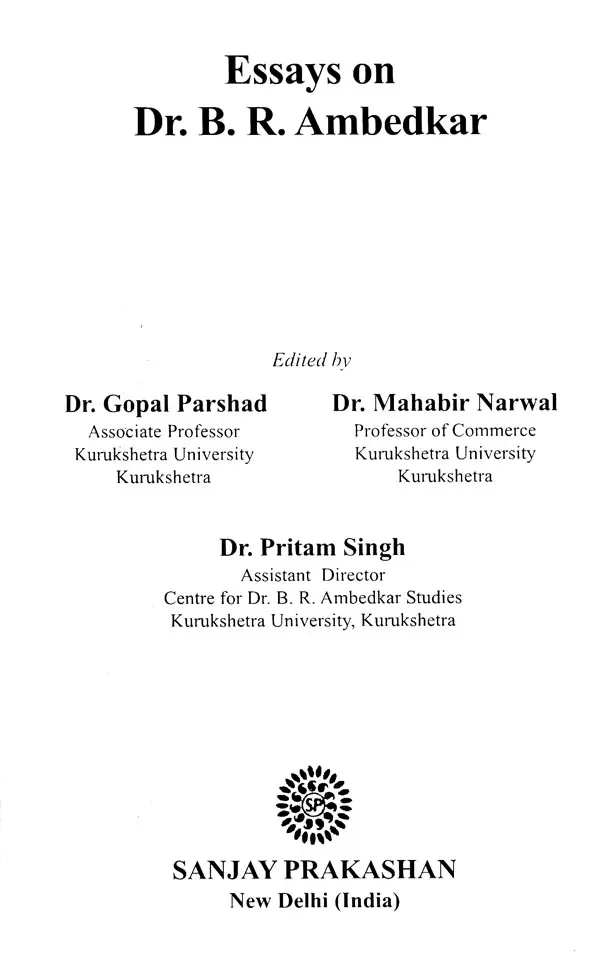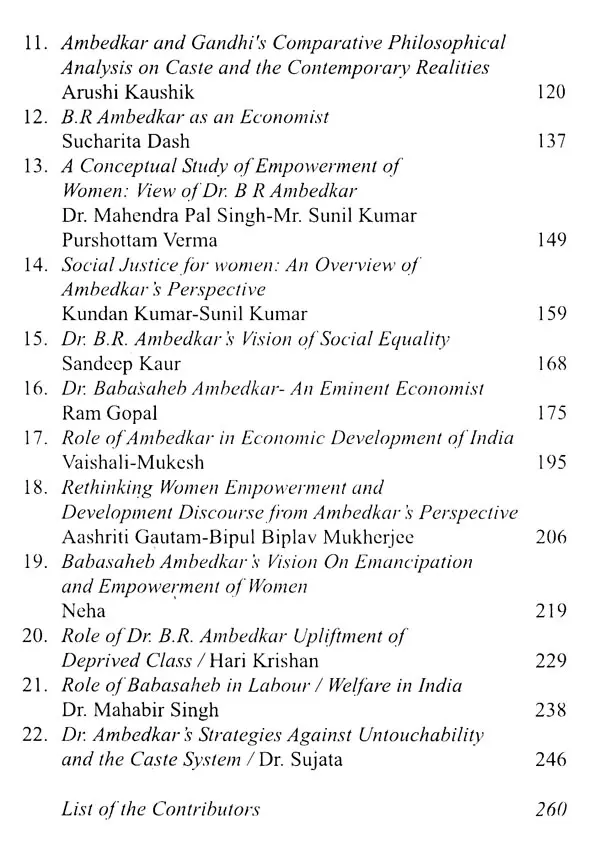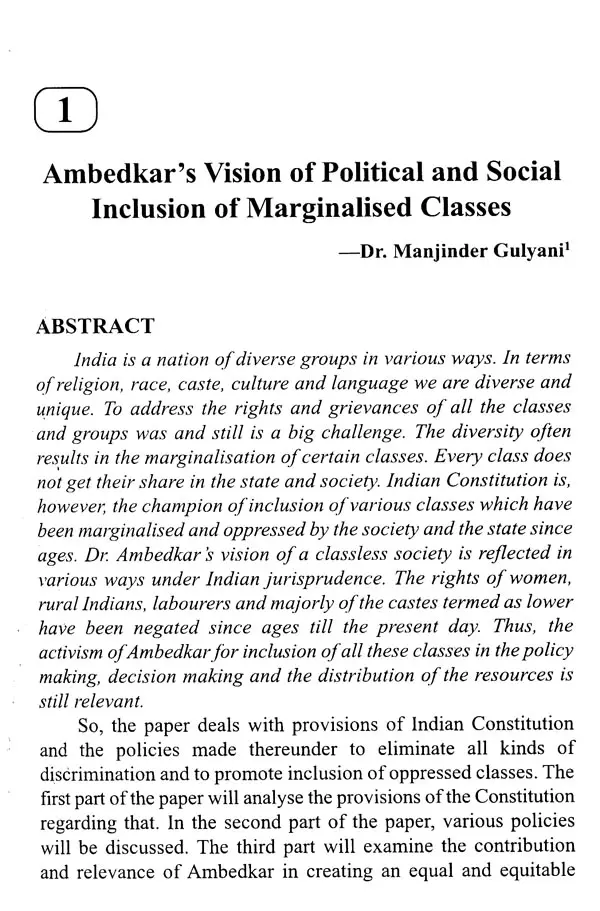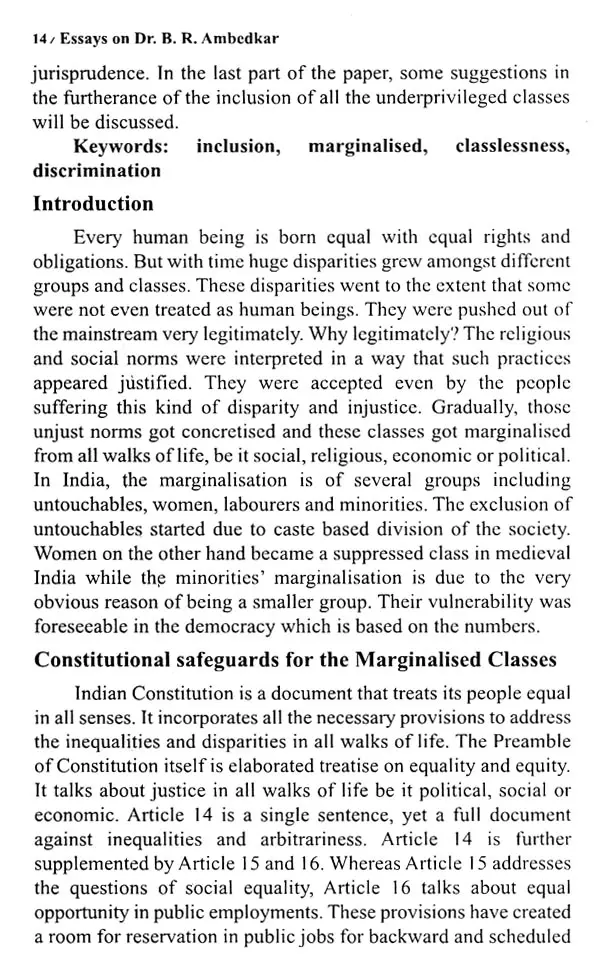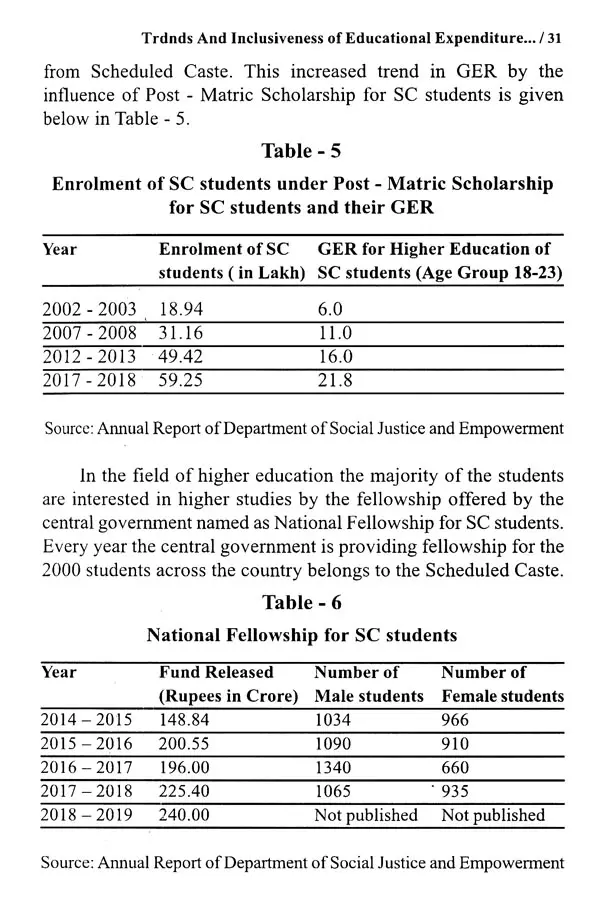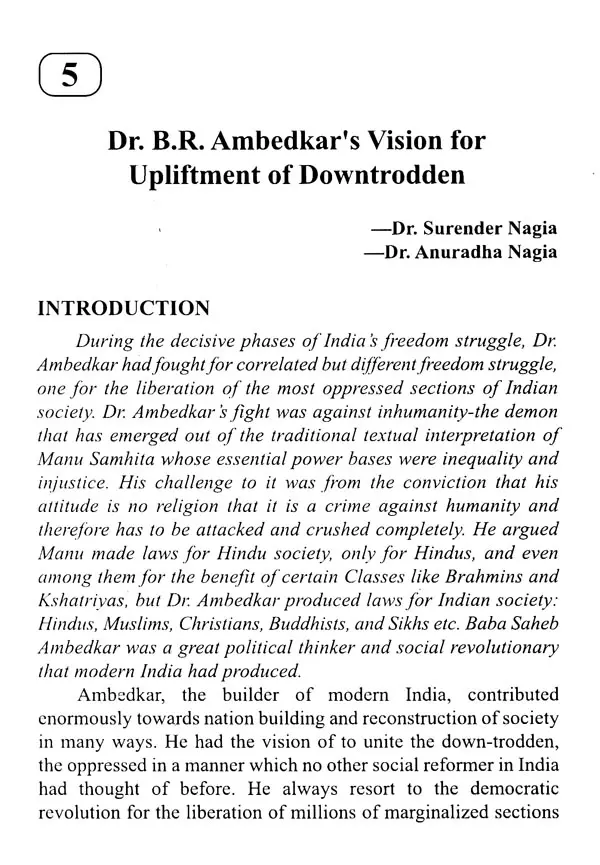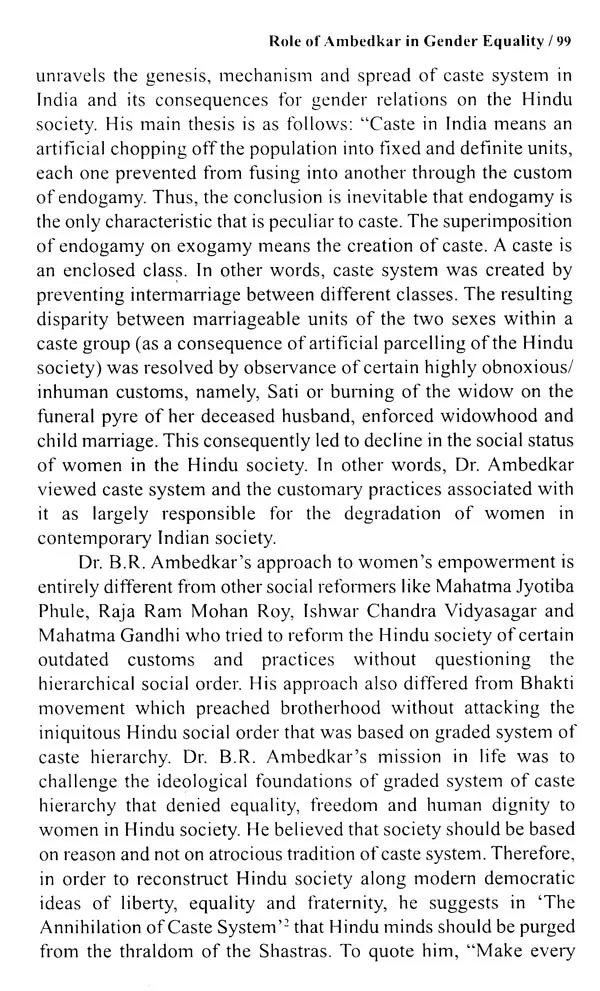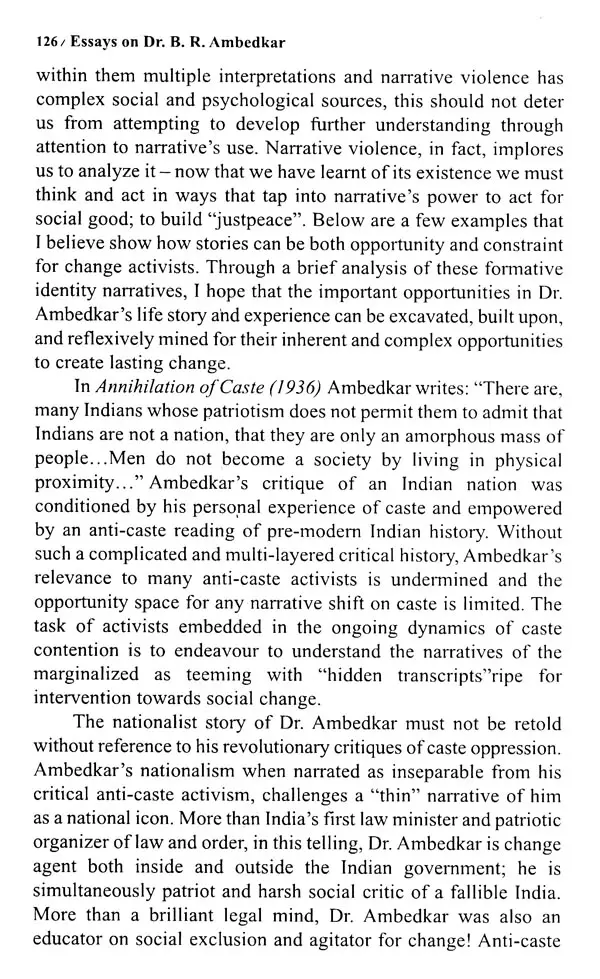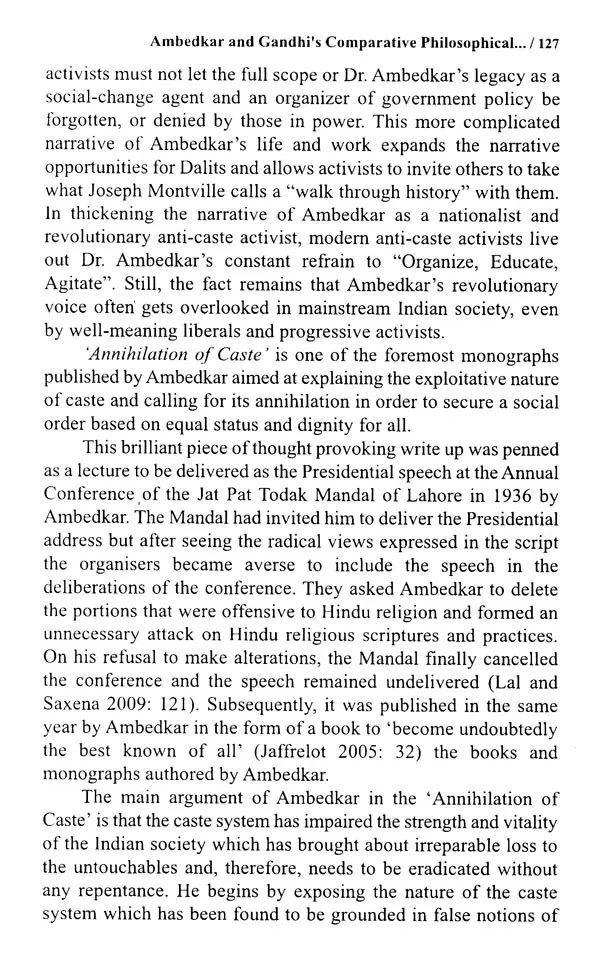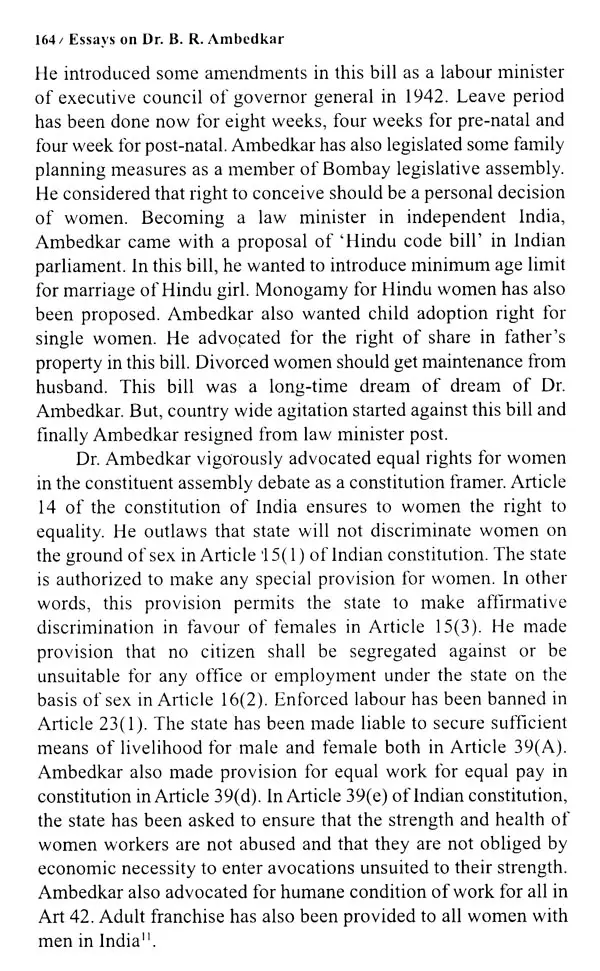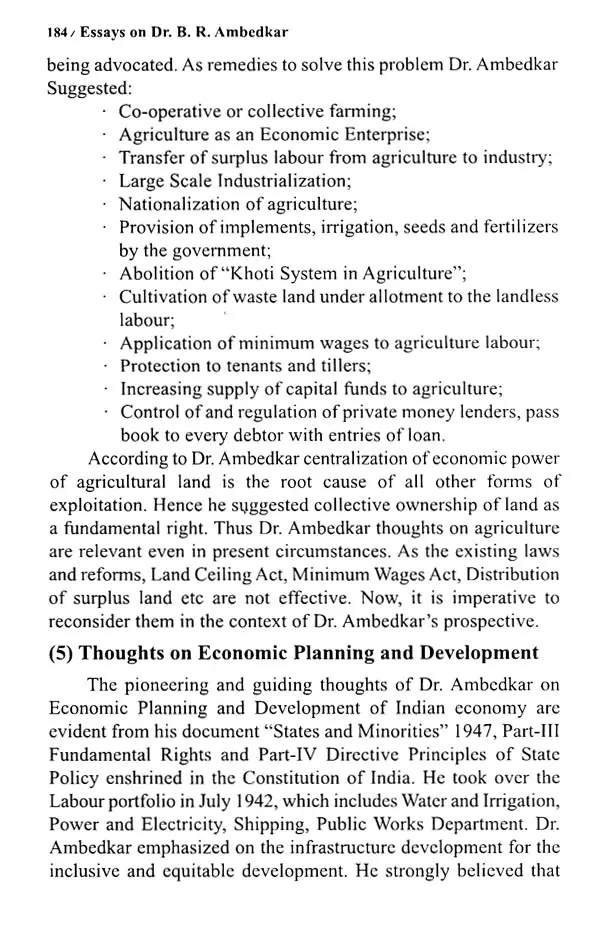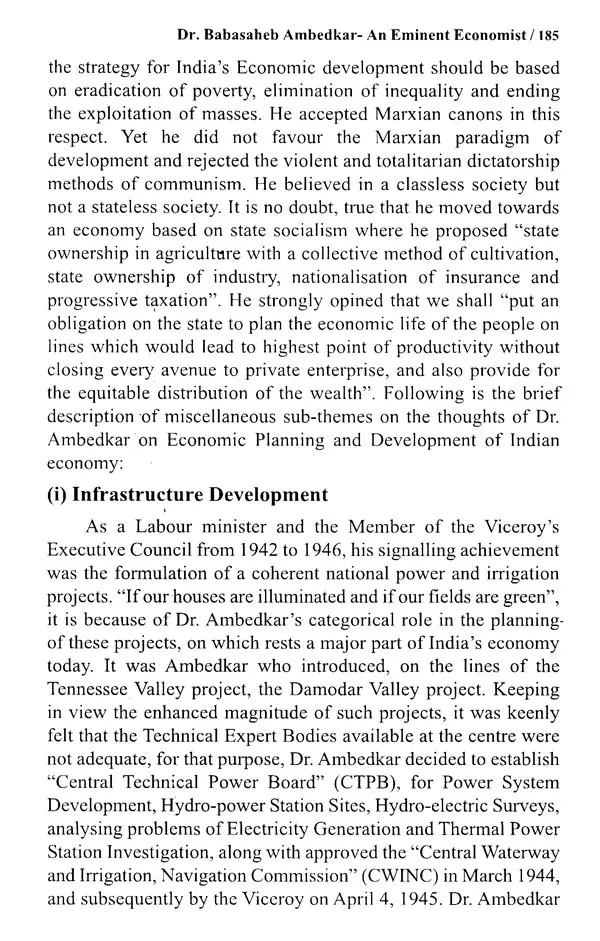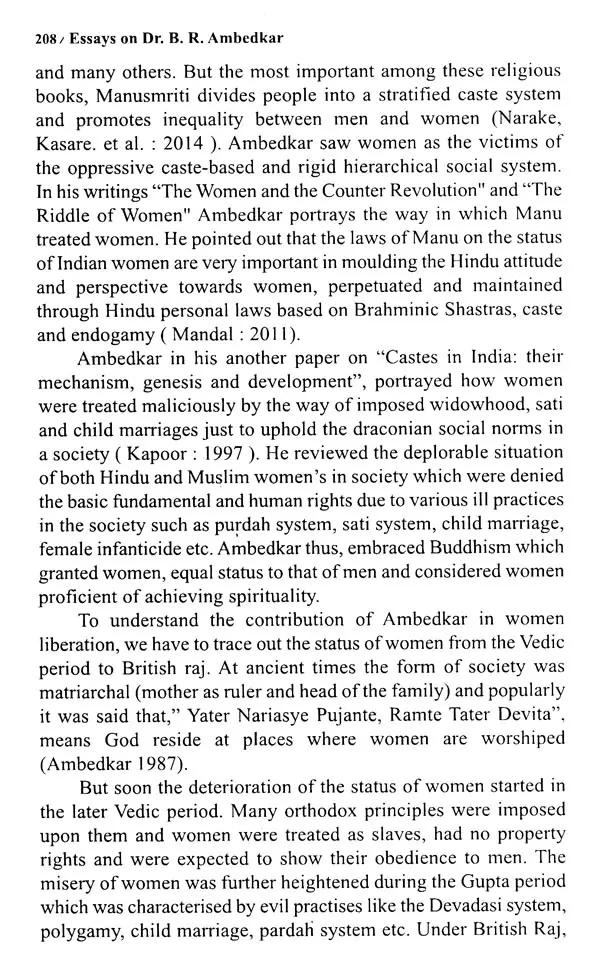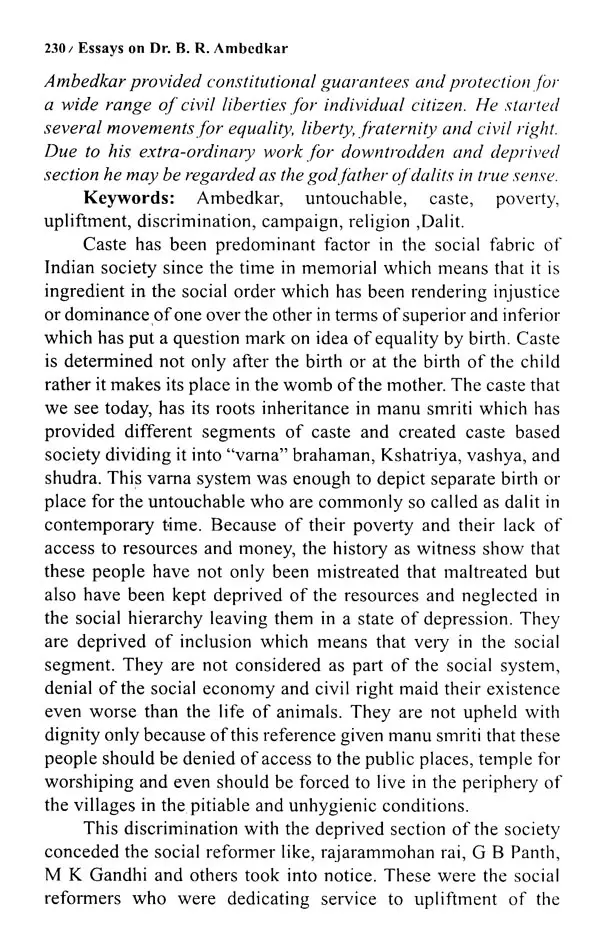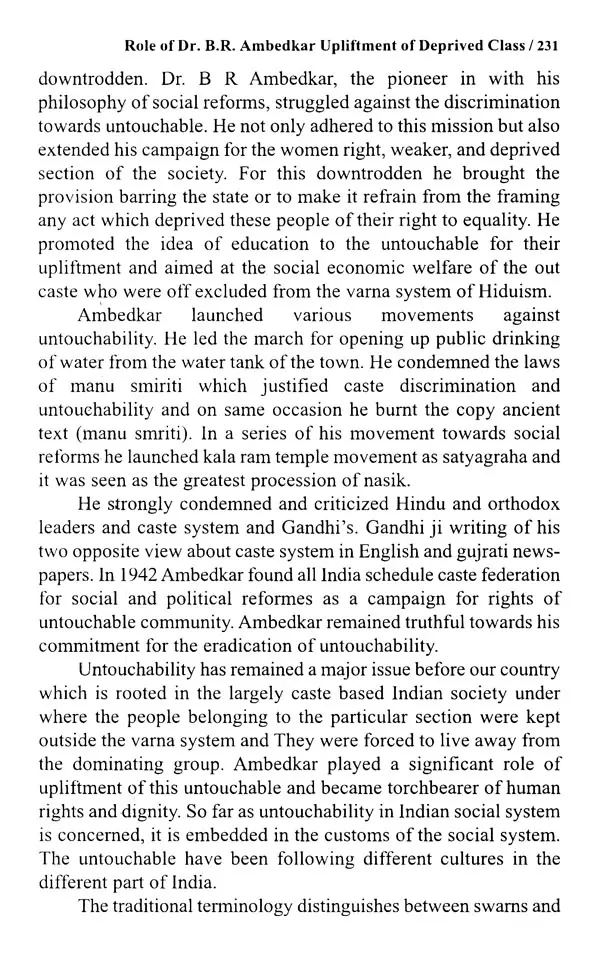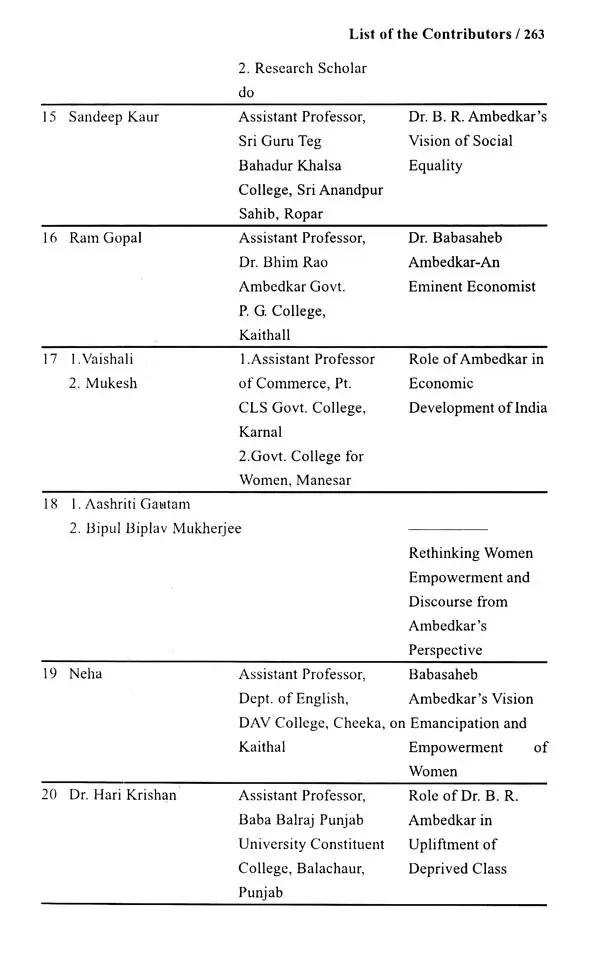
Essays on Dr. B.R. Ambedkar
Book Specification
| Item Code: | UAH821 |
| Author: | Various Authors |
| Publisher: | Sanjay Prakashan |
| Language: | English |
| Edition: | 2022 |
| Pages: | 264 |
| Cover: | HARDCOVER |
| Other Details | 9.00 X 6.00 inch |
| Weight | 520 gm |
Book Description
Dr. Mahabir Narwal is Professor, Department of Commerce, Kurukshetra University, Kurukshetra. He has a teaching experience of more than 21 years. His area of interest is Marketing and Corporate Social Responsibility (CSR). He has guided 4 Ph.D. and 45 M. Phil. students. He has to his credit over 40 research papers in national and international journal. He has presented around 52 research papers in national and international conferences/seminars. He has represented Kurukshetra University in International Conferences at Chicago (USA), Kuala Lumpur (Malaysia), Bangkok (Thailand) and Dabang (Vietnam). He has completed one minor research project "An Appraisal of Grant for Construction of House Development Scheme for Social Justice in Kurukshetra District" funded by Centre for Dr. B.R. Ambedkar Studies, Kurukshetra University, Kurukshetra, one Major Research Project "Corporate Social Responsibility: A tool of Strategic Advantage" funded by UGC, and authored Social Harmony and Nation Building: Perspectives of Dr. B. R. Ambedkar (2019), Revisiting Bhimrao Ambedkar: A Study of Social and Political Justice (2019) and Ambedkar's Vision of Socio-Economic Transformation (2020). He is also a paper coordinator to develop e-content and authored 10 Modules for Post Graduate Program in Human Resource Management under UGC Project, an initiative of Ministry of HRD. Besides academics, he is associated with UG/PG Board of Studies, various inspection, selection, UMC and enquiry committees. He has also been the member of University Court. He is associated to Road safety club, KUK as member. At present in addition to teaching, he is also working (additional charge) as Director, Centre for Dr. B.R. Ambedkar Studies, Kurukshetra University, Kurukshetra.
Dr. Pritam Singh is working as Assistant Director, Centre for Dr. B. R. Ambedkar Studies, Kurukshetra University Kurukshetra. He has more than 19 years' experience of teaching and research. His thrust area of research is Ambedkar studies, Dalit literature, Buddhist philosophy etc. He has published various books such as Atal Bihari Vajpayee Jivan Darshan (2014), Amrit Atal (2019) and Samajik Sangrash Ke Preneta: Dr. Bhimrao Ramji Ambedkar (2019). Apart from these, 13 research articles published in national and international journals also flowed from his pen. He has presented more than 21 research papers in national and international conferences. He is also awarded for his social services by Red Cross, Vidhya Bharati, KDB, Rotary Club etc.
. Ambedkar also held the view that education is an eloquent instrument for social harmony and nation-building. He started a mission to educate depressed people. Through education, he developed political and constitutional consciousness among poor and depressed masses. He also stressed on the unity of the country. For this purpose, he wanted to protect the interests of untouchables and minorities. As a result, he provided safeguards to the dalits and minorities. He also believed in the dignity and empowerment of women. Being first Law Minister of Independent India and Chairman of the drafting committee of Indian Constitution, he decided to free women from all old-age evils. He made various legal provisions in the Constitution for the empowerment of women. He, therefore, also took initiative to draft and introduce the Hindu Code Bill in the Constituent Assembly. However, this Bill could not be passed in the Constituent Assembly due to a stiff opposition on this issue both inside and outside the Assembly.
Ambedkar focused on economic reforms. To become an economically strong nation, he emphasized the development of agriculture, industry and trade. In agriculture field, he concentrated on land reforms, consolidation of land holdings and suggested that agriculture be considered at par with industry. He stressed on the division of land equally among the cultivators in the villages without distinction of caste, creed and religion. He also advocated that country should be industrialized extensively to mitigate the . unnecessary burden on the land. He observed that industrialization . would reduce unemployment in the country. He also offers an excellent exposition of the evolution of Indian currency system and its form as a medium of exchange and its equivalence in term of precious metals (gold and silver). Moreover, he played a pivotal role in the establishment of Reserve Bank of India in 1935.
The present book is an Endeavour to bring forth vision of Dr. Bhimrao Ambedkar from the pen of eminent scholars. They have presented their views on Indian Constitution, social justice, social, political and economic transformation of the country, etc. Legacy of Dr. Ambedkar is preserved and forwarded in true spirit by such . thinkers who dedicate their time to take principles to the grassroots. I would like to congratulate editors on producing an . impressive and brilliant research work on the Essays on Dr. B. R. Ambedkar. This book is good enough and fruitful for the society. J does hope that this book will strengthen the social and political justice and contribute towards building a strong nation.
Dr. Bhimao Ramji Ambedkar (1891-1956) was one of the most illustrious figures of Modern India. Born in a Dalit family, educated on-the lines of the western system, a dedicated scholar, a reputed jurist, a great social reformer and an architect of the Indian Constitution, he played a significant role in the social, economic and political transformation of the country. He struggled throughout life in securing human rights, abolishing untouchability and doing away with the authority of old caste system. He realized that without the annihilation caste system social harmony and nation-building cannot be carried out as well as accomplished.
He was not only anti-caste system, anti-Brahmanism but also was against all kinds of injustice and exploitation. To secure social rights to the untouchables or depressed classes, he launched Mahad Satyagraha. In 1926, the Municipality Committee had passed an order to throw: open the Chavdar tank to all sections of society, but it could not be implemented. On 19 March 1927, Bhimrao Ambedkar and his followers marched to the Chavdar tank, drew water from the tank and drank it.
Dr. Ambedkar also launched temple entry movement at Nasik. In March 1930, a large number of volunteers and representatives assembled at Nasik. On 2 March Ambedkar delivered a thought- provoking speech on the issue of entry to Kalaram temple. On 3 March about 8,000 Dalits marched peacefully to enter the temple, but its doors were closed. The Satyagraha was continued till 9 April 1930. It was the day of the chariot procession of the idol of Rama. A compromise was struck up between the caste Hindus and the untouchables. But there was also a clash between police and dalits as well as free fighting between groups of dalits and upper caste Hindus all over the city. Kalaram temple entry Satyagraha provoked considerable ill-feeling in the minds of orthodox Hindus.
Consequently, the untouchables in several villages were brutally treated. On 3 March 1934, Ambedkar wrote a letter to Bhaurao Giakwad and explained his stand about temple entry Satyagraha.
In fact, he wanted the depressed people to become worshippers of idols which they were not allowed to worship, because the entry in the temple would make them equal members in and an integral part of the Hindu society.
Dr. Ambedkar put special emphasis on the principles of social democracy by advocating the socially excluded sections of the Indian society. He wanted to strengthen the emerging sphere of political democracy in India by substantiating it with the institutionalization of the less talked about phenomenon of social democracy. He said that social democracy is a way of life which recognizes liberty, equality and fraternity as the principles of life.
Book's Contents and Sample Pages
